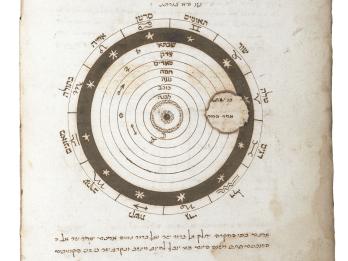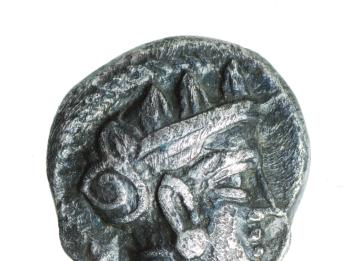Chronicle of Fez
Ibn Danan Family
1616
I have found written in the handwriting of the sage, our master, the crown and glory that rests upon our heads, the perfect sage and excellent judge, who is modest and happy in all his affairs. His name is renowned, our master his honor R. Samuel Ibn Danan of eternal blessed memory, the father of the sage, my grandfather, his honor R. Sa‘adia of blessed memory:
In the year, may God save Your nation, the remnant of Israel [i.e., 5376], to creation. During most of Adar no rain fell, and also in the month of Nisan: from the day the month began the rains grew less until the eve of Passover. We declared a public fast on Thursday, 13th of Adar, even though it is not customary to declare a fast on Thursday, so as not to raise prices [see m. Ta‘anit 2:9]. This was done because the situation was very urgent, and some of them had proposed to do it [declare the fast] from the previous Monday. Therefore, we went beyond the letter of the law. [ . . . ]
We decreed three fasts upon the public, on Monday, Thursday, and Monday, including the recitation of the seven [special] benedictions [for fasts]. All the holy congregations, may the Rock preserve them, prayed only in two synagogues, may God expand their borders: ours, which is the one of the toshavim [“residents”; Moroccan Jews], may the Rock preserve it, and that of the Talmud Torah, may God expand its borders. They prayed Sha-ḥarit, Minḥah, Ne‘ilah, and Arvit, and they also sounded the shofar. After leaving the house of prayer, we went up to the cemetery of the residents and those who were expelled, and recited the penitential prayers and the entreaties between the synagogues, may the Lord expand their boundaries, of the First Midrash and the New Midrash, may the Lord expand their boundaries.
After all of that, on Monday, Rosh ḥodesh Iyar, there was a great outcry and the sounding of a ram’s horn in the markets and the streets between the aforementioned synagogues, may the Lord expand their boundaries, and in the streets of the city and at the gateway of the mellah [Jewish quarter] may the Exalted one establish it, amen, among the graves of the martyrs during the persecution of the year 5425 [1465], may sorrow not arise twice. They are buried in the place where the tax collector sits—and that doorway is closed for the entrance and exit of priests [kohanim]—and also in the cemetery close to the entrance to the mellah and the gate of the Muslim quarter. There we raised a great outcry, and we wept mightily, and after the penitential prayers we read Remember, Lord, what was with us, Look and behold our reproach (Lamentations 5:1) until the end of the scroll of mourning: Return us, O Lord, to You (Lamentations 5:21) and so on. In order to increase the weeping we recited the special Kaddish for the Ninth of Av and a house of mourning, and all the people burst out in great weeping.
At that very hour, the heavens darkened with clouds, and when we reached our houses, in the great mercy of the blessed Creator, when the Holy One removed the sun from its case [i.e., in the morning; see b. Gittin 77a], the redemption of the Lord arrived in the wink of an eye. Behold at noon: blessed and desired rains. The Name of Heaven was sanctified through us, and at Minḥah, all the holy congregations, may the Rock preserve them, came together in the two aforementioned synagogues where we had prayed the three fasts, and they enjoyed a great celebration with hymns and songs and praises. I gave a sermon about gratitude for rain. We commanded all the holy congregations, may the Rock preserve them, to come the next day as well to the two synagogues, at which point we gave a long sermon about gratitude and there were also hymns. The holy congregations, may the Rock preserve them, made a fine charitable donation, which was distributed to masters of the Torah on that day and to the poor and destitute, just as we did on all the fasts.
We reminded the holy communities, may the Rock preserve them, of the grace of God, and from then on the windows of heaven were opened (Genesis 7:11) wide, and the Holy One made the latter part of the year better than the first part, in His great mercy, so much so that all the residents of the city, Jews and gentiles, were taken by surprise. We had not expected this, but the graces of God that cannot be numbered, for His mercy has not ended [see Lamentations 3:22]. If we were to attempt to recount the events that He performed for us, the time would run out but they will not be exhausted. May He who said to His [expanding] world, “It is sufficient,” say likewise to our troubles, “They are sufficient,” amen.
The speech of the writer burdened with tribulations in the year [53]77 [1617]. For we did not find leisure in the last year to write everything that happened to us. The youth, servant of the Merciful and Gracious One, Samuel Ibn Danan, may it be for a good omen.
This is all that his honor wrote.
Credits
Published in: The Posen Library of Jewish Culture and Civilization, vol. 5.




